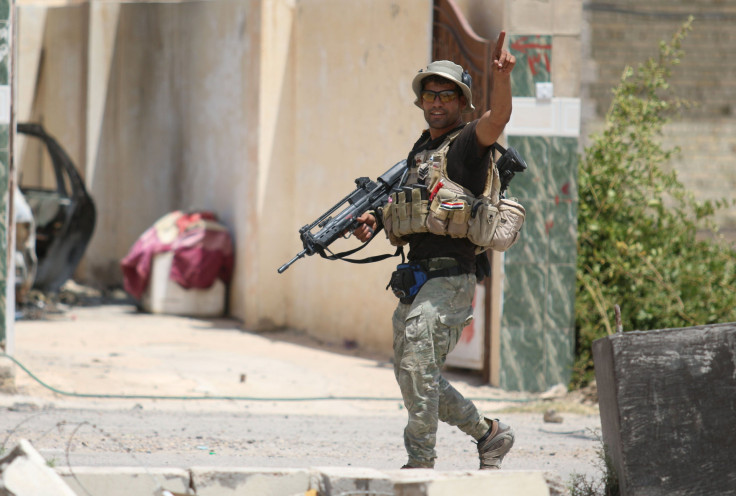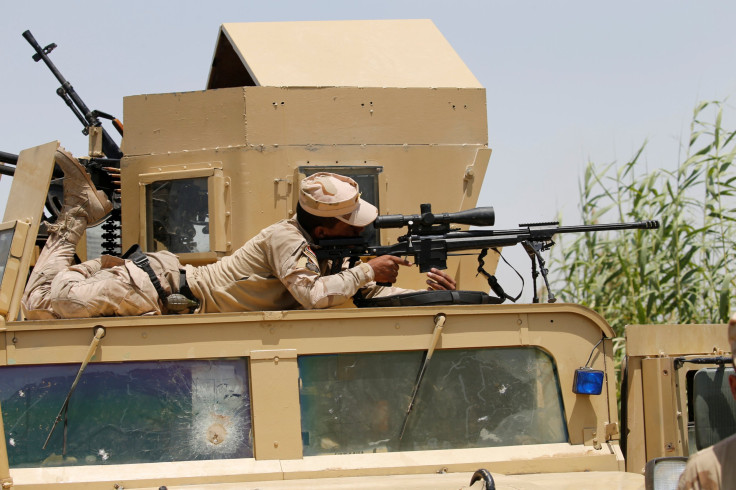ISIS In Iraq: Fallujah Regained By Iraqi Forces After Five Weeks Of Fighting Against Islamic State Militants

After more than a month of intense fighting between the Islamic State group and Iraqi security forces, the Iraqis are claiming victory and saying they effectively have pushed the terrorist organization out of Fallujah.
The Iraqi city, which had been controlled by the group, also known as ISIS, for about 2 1/2 years, was claimed by Iraqi forces after five weeks of battle that resulted in approximately 1,800 dead militants. Clearing operations in the city continue, NPR reported.
Lt. Gen. Abdel Wahab al-Saadi, the commander of the anti-ISIS forces, praised the victory on state television during the weekend, just a week after Prime Minister Haider al-Abadi declared victory in the city and said there was only relatively minor opposition left. The United States backed the Iraqi forces in efforts to push the terrorist group out.
The city, which lies just 40 miles north of Baghdad — the country’s capital — played an important strategic role for militants. When they had control of the city it was easier to plan attacks in Baghdad. Fallujah was one of the first major urban centers to fall when ISIS went on the offensive in 2014 and ultimately came to control roughly a third of the country, the Wall Street Journal said.
Many suicide missions — which wreaked havoc on the country — were suspected to have been planned in Fallujah, which served as something of a command center for militants looking to attack Baghdad. The city also served as something of a trial run as Iraqi forces ready for the upcoming fight in Mosul.
Iraqi and U.S. officials noted the five-week attack on Fallujah is an important political victory for Abadi since the mission was completed so quickly. Because of that relatively quick clearing, much of the city is still inhabitable and damage to buildings and infrastructure was limited. An estimated 85,000 people have left the city. Still, it may take a long time before people can be moved back in as forces now need to clear the area of potential bombs and other dangers.

© Copyright IBTimes 2024. All rights reserved.












